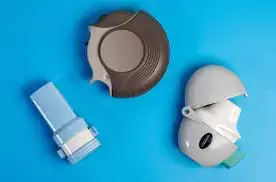- Home
- Medical news & Guidelines
- Anesthesiology
- Cardiology and CTVS
- Critical Care
- Dentistry
- Dermatology
- Diabetes and Endocrinology
- ENT
- Gastroenterology
- Medicine
- Nephrology
- Neurology
- Obstretics-Gynaecology
- Oncology
- Ophthalmology
- Orthopaedics
- Pediatrics-Neonatology
- Psychiatry
- Pulmonology
- Radiology
- Surgery
- Urology
- Laboratory Medicine
- Diet
- Nursing
- Paramedical
- Physiotherapy
- Health news
- Fact Check
- Bone Health Fact Check
- Brain Health Fact Check
- Cancer Related Fact Check
- Child Care Fact Check
- Dental and oral health fact check
- Diabetes and metabolic health fact check
- Diet and Nutrition Fact Check
- Eye and ENT Care Fact Check
- Fitness fact check
- Gut health fact check
- Heart health fact check
- Kidney health fact check
- Medical education fact check
- Men's health fact check
- Respiratory fact check
- Skin and hair care fact check
- Vaccine and Immunization fact check
- Women's health fact check
- AYUSH
- State News
- Andaman and Nicobar Islands
- Andhra Pradesh
- Arunachal Pradesh
- Assam
- Bihar
- Chandigarh
- Chattisgarh
- Dadra and Nagar Haveli
- Daman and Diu
- Delhi
- Goa
- Gujarat
- Haryana
- Himachal Pradesh
- Jammu & Kashmir
- Jharkhand
- Karnataka
- Kerala
- Ladakh
- Lakshadweep
- Madhya Pradesh
- Maharashtra
- Manipur
- Meghalaya
- Mizoram
- Nagaland
- Odisha
- Puducherry
- Punjab
- Rajasthan
- Sikkim
- Tamil Nadu
- Telangana
- Tripura
- Uttar Pradesh
- Uttrakhand
- West Bengal
- Medical Education
- Industry
Single-inhaler triple therapy controls nocturnal symptoms of asthma faster than single-inhaler dual therapy

Single-inhaler triple therapy controls nocturnal symptoms of asthma faster than single-inhaler dual therapy suggests a new study published in the Journal of Asthma and Allergy.
The efficacy and safety of first-line triple and dual therapy remain unclear because the stepwise strategy is a worldwide standard in controller-naïve asthma. A preliminary retrospective cohort study was conducted to investigate the efficacy and safety of first-line triple and dual therapy for managing controller-naïve and symptomatic adult patients with asthma.
Patients with asthma who received first-line single-inhaler triple therapy (SITT) or dual therapy (SIDT) for at least 8 weeks were selected between December 1, 2020, and May 31, 2021, in Fujiki Medical and Surgical Clinic, Miyazaki, Japan. Data on daytime and nighttime visual analog scale (VAS) scores, lung function tests, fractional exhaled nitrogen oxide (FENO), and adverse events were compared between SITT and SIDT pre- and post-treatment.
Results:
The SITT significantly improved the nighttime, but not daytime, VAS scores better than the SIDT 2 weeks post-treatment (P = 0.0026), whereas SITT and SIDT significantly improved daytime and nighttime VAS scores after treatment compared to baseline. Both therapies also significantly improved lung functions and FENO post-treatment. The proportion of patients achieving complete control in the nighttime VAS scores after SITT was significantly higher than that four (P = 0.0186) and 8 weeks (P = 0.0061) after SIDT. Only patients with SITT experienced dry mouth.
The study demonstrated that first-line SITT and SIDT were effective, and SITT improved disease control faster than SIDT in controller-naïve and symptomatic adult patients with asthma. The first-line SITT may contribute to faster and better control levels in symptomatic patients with asthma.
Reference:
Fujiki R, Kawayama T, Furukawa K, Kinoshita T, Matsunaga K, Hoshino T. The Efficacy and Safety of First-Line Single-Inhaler Triple versus Dual Therapy in Controller-Naïve and Symptomatic Adults with Asthma: A Preliminary Retrospective Cohort Study. J Asthma Allergy. 2023;16:227-237
https://doi.org/10.2147/JAA.S401505
Dr. Shravani Dali has completed her BDS from Pravara institute of medical sciences, loni. Following which she extensively worked in the healthcare sector for 2+ years. She has been actively involved in writing blogs in field of health and wellness. Currently she is pursuing her Masters of public health-health administration from Tata institute of social sciences. She can be contacted at editorial@medicaldialogues.in.
Dr Kamal Kant Kohli-MBBS, DTCD- a chest specialist with more than 30 years of practice and a flair for writing clinical articles, Dr Kamal Kant Kohli joined Medical Dialogues as a Chief Editor of Medical News. Besides writing articles, as an editor, he proofreads and verifies all the medical content published on Medical Dialogues including those coming from journals, studies,medical conferences,guidelines etc. Email: drkohli@medicaldialogues.in. Contact no. 011-43720751


